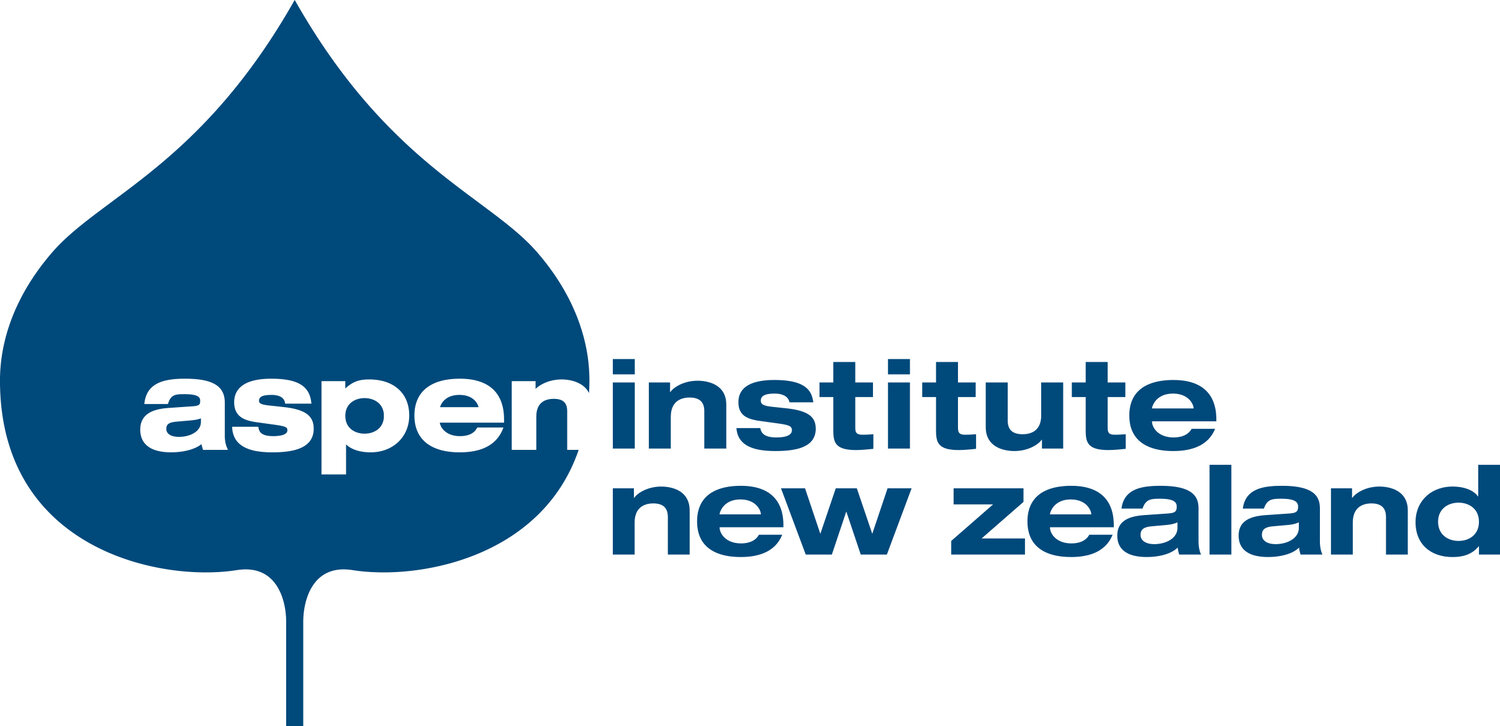Calling all Members of Parliament - Improve Your Decision Outcomes
Tuesday 19th November, 4:00pm to 9:30pm
Wednesday 20th November, 4:00pm to 9:30pm
Learn how to improve your decision outcomes through Evidence and Values Based Decision Making (EVBDM), a custom-designed course led by Neil Jacobstein, Director of the Aspen Institute NZ.
EVBDM is an immersive course for enhancing decision making skills using real-world evidence and stakeholder values. It equips participants with a simple framework that provides a systematic approach for complex situations, to improve outcomes and mitigate the risk of costly bad decisions.
Building on the success of our May intake of Members of Parliament, we’re excited to announce that our second intake of MPs will take place in November, in partnership with the Parliamentary Education Trust.
“As a new Member of Parliament, completing the Aspen Institute New Zealand's Evidence and Values-Based Decision Making training has been an invaluable experience. This programme has equipped me with the skills to make informed, effective policy choices that genuinely reflect the needs and values of our communities. The comprehensive approach to integrating evidence with ethical considerations has profoundly enhanced my ability to contribute to the betterment of our society and country. I am grateful for this opportunity and confident that the knowledge gained will significantly impact my work in public service.”
Nancy Lu, National List MP
Course Overview
In today's complex organisational landscape, EVBDM acts as a strategic compass, empowering individuals and organisations to navigate challenges and align decisions with both immediate needs and long-term goals.
The course examines decision making challenges and emphasises the need for a systematic approach to enhance organisational decision making, while sharpening personal and business decision skills.
EVBDM can bring transformative benefits to an organisation, improving efficiency, increasing trust among teams, and mitigating the risk of costly decision errors.
Key Questions Explored
What is evidence and how can we use it systematically?
Examine the fundamental role of evidence in decision making, emphasising the need for publicly disclosed and validated information.
How can we ensure that our own values are utilised powerfully?
Explore the implications of personal values, addressing the intricacies of decision making trade-offs and understanding the relative strengths of values.
How can we use an evidence and values framework to improve decision outcomes?
Delve into the critical process of combining evidence and values within a systematic framework, addressing decision errors, risks, time frames, and other constraints.
“Evidence and values based decision making is something all MPs should want to ensure they are focused on. We don’t take enough time as MPs to undertake professional development, and to pause from pure politics to reflect and learn. As leaders, it is essential we continue to strive to learn and be learners.”
Hon. Carmel Sepuloni, Deputy Leader of the Labour Party
EVBDM Framework
The course introduces the Evidence and Values Decision Framework, a simple yet powerful approach, comprising nine essential steps that provide a pathway to enhance decision methods and outcomes. Delivered as three modules over two sessions, each module offers condensed summaries and optional readings to deepen participants' understanding of critical issues.
Registration Criteria
This course (November 19 & 20, 2024) is exclusively for New Zealand Members of Parliament. Participants are expected to attend both sessions and follow Chatham House rules. The course is not recorded.
Course Lead
Neil Jacobstein - Director, Aspen Institute New Zealand
Founding faculty member and past President of Singularity University, with extensive consulting experience in industry and government. He was a MediaX Distinguished Visiting Scholar at Stanford University 2007-2023, where his work focused on augmented decision systems. Neil was appointed by the US National Academy of Sciences, Engineering, and Medicine to the Earth and Life Studies Committee 2016-2022, and worked on the Academy's 2021 Strategic Plan. He is a 2024 Enterprise Fellow at the University of Otago. Neil is a Henry Crown Fellow at the Aspen Institute US, and a frequent seminar moderator. He is a founding Board Director of the Aspen Institute in New Zealand. Neil was the lead author of an AI in New Zealand Report published in 2022 by investment bank Forsyth Barr. Neil has worked on XPrize pandemic response, and is a 2024 Judge of the Bezos Earth Fund's $100M AI for Climate and Nature Challenge. He consults and speaks worldwide for industry, startups, and government organizations. Neil has an inclusive moderating style that makes complex issues easy to understand.
“Anyone interested in global politics and wishing to have informal contact with the major international players, the linkages you can find through the Aspen NZ are a roll call of "who's who". The Aspen Institute in Washington DC, the "mother ship", clearly advocates for bipartisanship membership and has the capacity to host and convene major political debates of the day. I realise that all MPs are very busy, but I would encourage you all to have a look at what the Institute has to offer.”
Sir Don McKinnon, Co-Patron & Director, Aspen Institute NZ
The Aspen Institute New Zealand - Empowering Future Generations for a Resilient Democracy
At the Aspen Institute New Zealand, our mission is clear: we strive to improve outcomes on crucial intergenerational issues and foster a resilient and thriving democracy for the future generations of New Zealand. As the sole Aspen partner in the Southern Hemisphere, we bring immense value through the unique Aspen method and network.
Our approach is built on the Aspen core principles of open dialogue, respectful disagreement, diversity of thought, and broad freedom of expression. We offer a safe and non-partisan platform for conversations, using the Aspen moderated process to foster critical thinking. Our goal is to enhance understanding, generate solutions that benefit different generations, manage risks, and motivate action through the public and private forums that we convene.


